Новости 30.11.2023
Vyzov Foundation launches a new incentive to support scientists

The "Vyzov Accepted: An Alternative to the Nobel Prize and Prospects for Young Scientists" session was held at the III Young Scientists Congress in Sochi. The participants discussed ways of supporting science. The VYZOV National Award in Future Technology, established in 2023, was one of the proposed incentives.
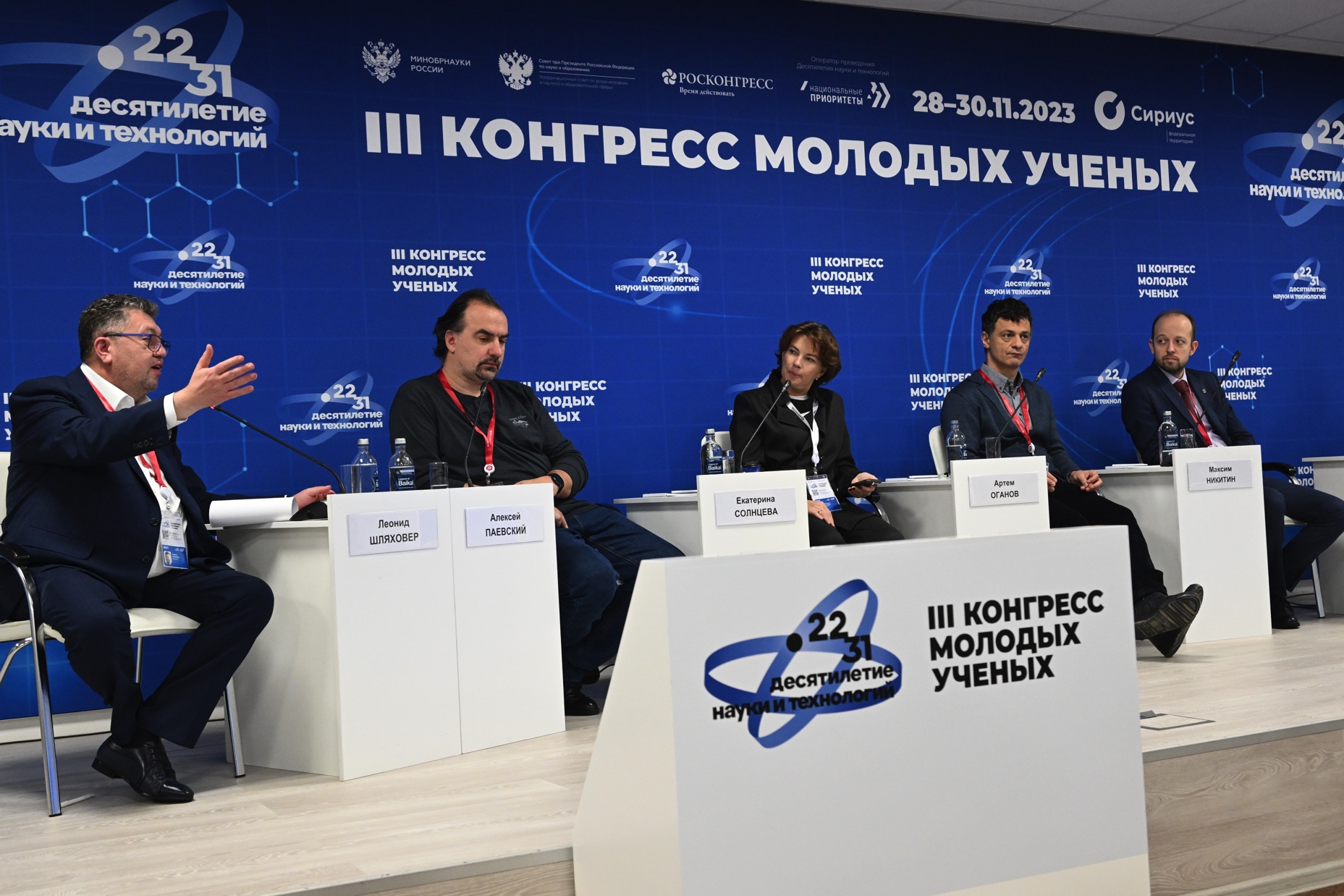
Photo: The III Young Scientists Congress
Leonid Shlyakhover, President of the Vyzov Foundation for the Development of Scientific and Cultural Relations, moderated the session.
Ekaterina Solntseva, Digitalization Director at the Russian Atomic Energy Corporation Rosatom, emphasized that the award is a completely new way of supporting science in Russia:
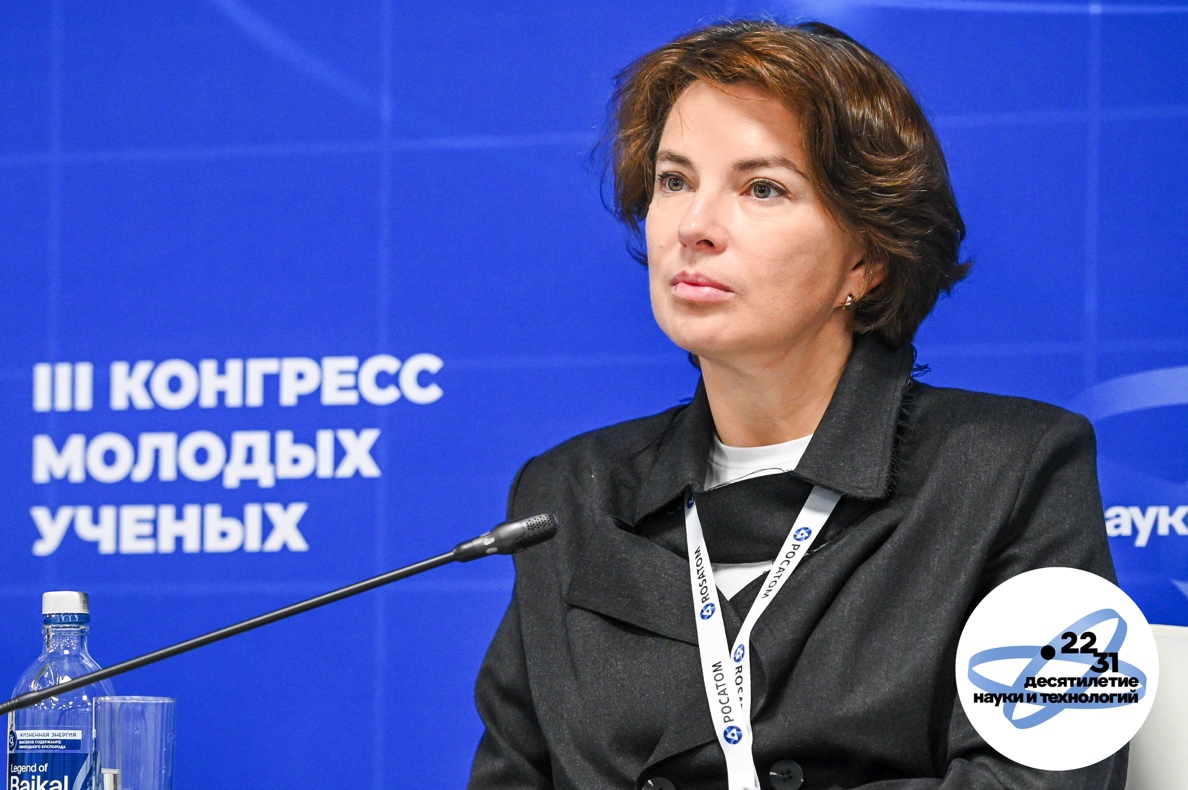
Ekaterina Solntseva, Rosatom Digitalization Director
Photo: The III Young Scientists Congress
– It is time to create new international institutions to support scientists. And it makes sense that they appear in our country. We did a lot of things first. We were the first in space. We created the first satellite. We launched the first nuclear power plant. Today, we create a new incentive to support scientists – the VYZOV award. I want to point out that it is not an "alternative to the Nobel Prize", not a "local initiative", but a new international tool to support researchers working in breakthrough areas. Attempts to build borders in the scientific community are not in favor of global development. That is why Rosatom supports the initiative to make the next year's VYZOV an international award. And, by the way, when working with foreign audiences, we do not plan to translate the word VYZOV into other languages. It’s not just a challenge, it’s VYZOV. It should become a truly international concept – just as the word "sputnik" did in its time, symbolizing humanity’s leap to new technological heights.
According to Artem Oganov, Chairman of the VYZOV Award Scientific Committee and Professor at the Skolkovo Institute of Science and Technology, the purpose of the award is to show who is a reference point, a role model for scientists and, at the same time, a vector for investment in modern Russian science.
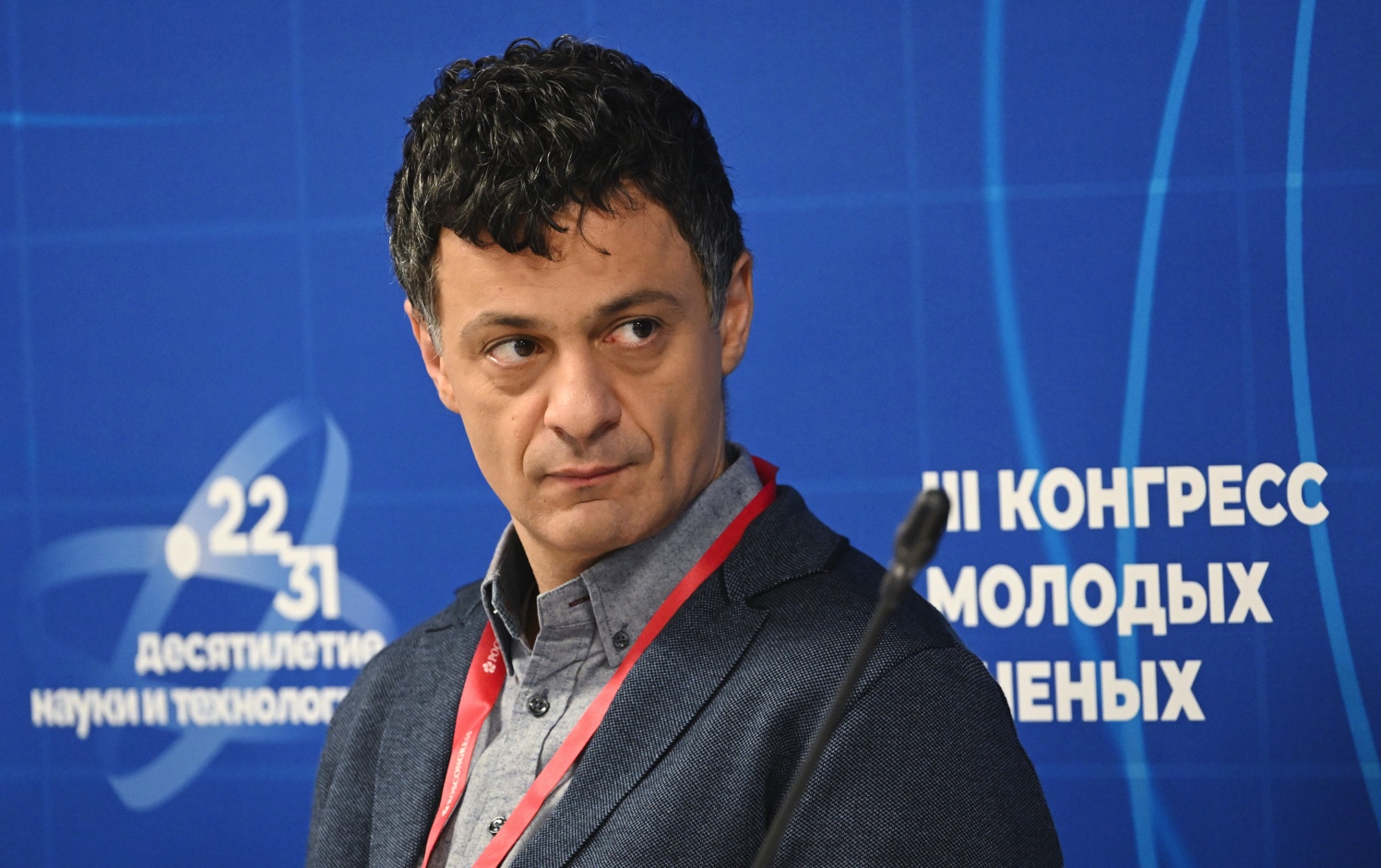
Artem Oganov, Chairman of the VYZOV Award Scientific Committee, Professor at the Skolkovo Institute of Science and Technology
Photo: The III Young Scientists Congress
– We aim to bring an element of prediction and foresight into our approach to selecting the winners. The VYZOV Award recognizes technological breakthroughs that are reasonably proven to work but not yet implemented. We focus on technologies that work but have not yet been able to come to every home, and these can be both fundamental and applied discoveries. The main thing when choosing the winners is to find discoveries that pave the way to the future, – he said.
Aleksey Fedorov, Deputy Chairman of the VYZOV Award Scientific Committee and Head of the Quantum Information Technologies research group at the Russian Quantum Center explained that the selected award winners offer the scientific solutions that have the greatest potential for changing the world and for practical implementation in midterm.
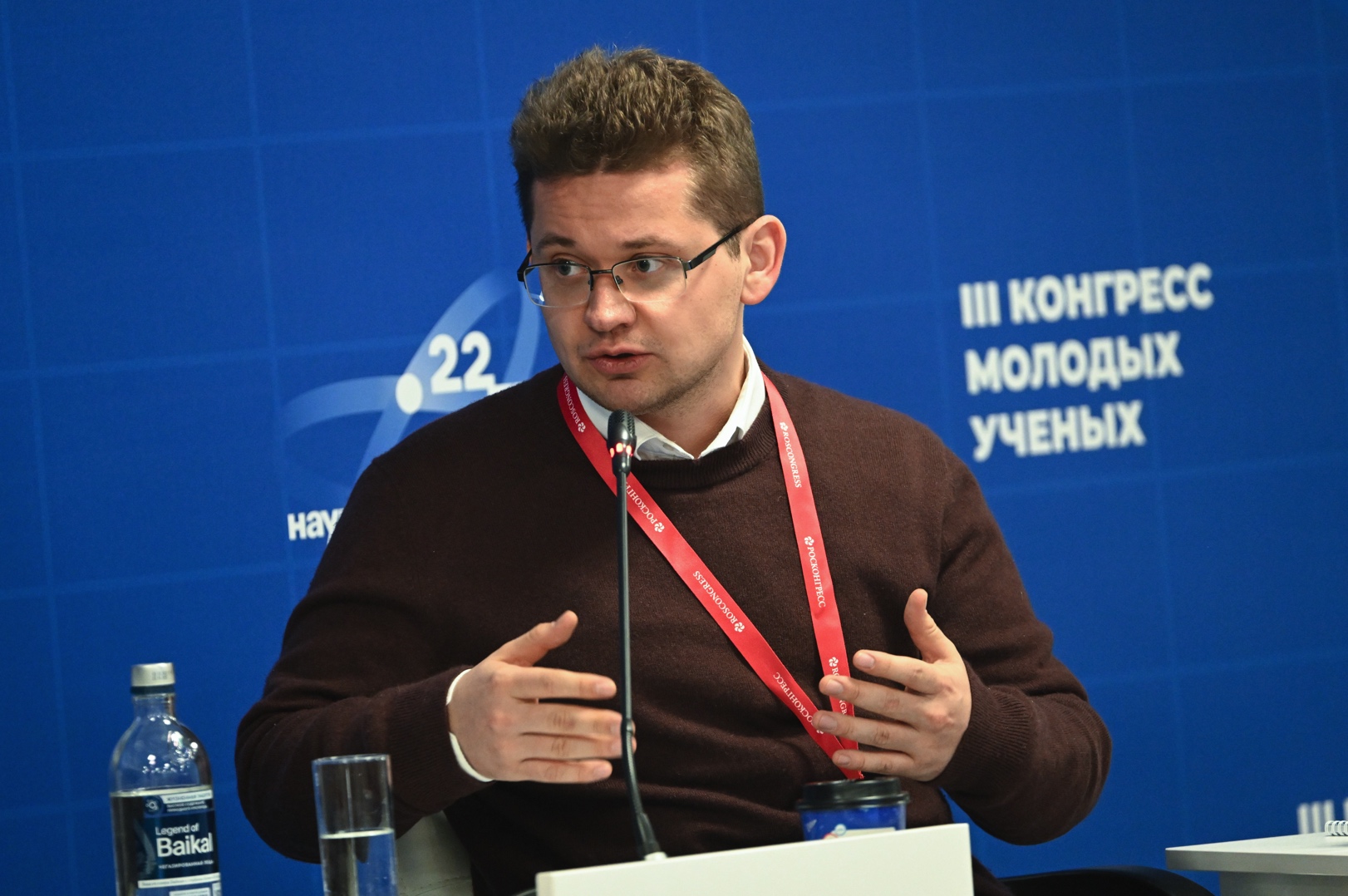
Aleksey Fedorov, Deputy Chairman of the VYZOV Award Scientific Committee, Head of the Quantum Information Technologies research group at the Russian Quantum Center
Photo: The III Young Scientists Congress
– We have chosen a ten-year timeframe to estimate the prospects of a project. Ten years ago, artificial intelligence was just entering the stage of rapid development. Now it’s already present in every device. So, it's possible to predict how a technology will transform within ten years. That's why we created the VYZOV Award for science-intensive technologies that can potentially improve our lives ten years from now. This Award is a seal of approval signaling that businesses should invest in these projects. It can become an impulse to put the idea into practice. Science flourishes when it has robust partners able to bring ideas to a new technological level. – he said .
Alexey Paevsky, Curator of the Decade of Science and Technology project, spoke about two conditions necessary for the success of the VYZOV Award: its internationality and adherence to traditions. According to him, strong winners and strict principles will make it possible to preserve and maintain the high status of the Award for many years to come.
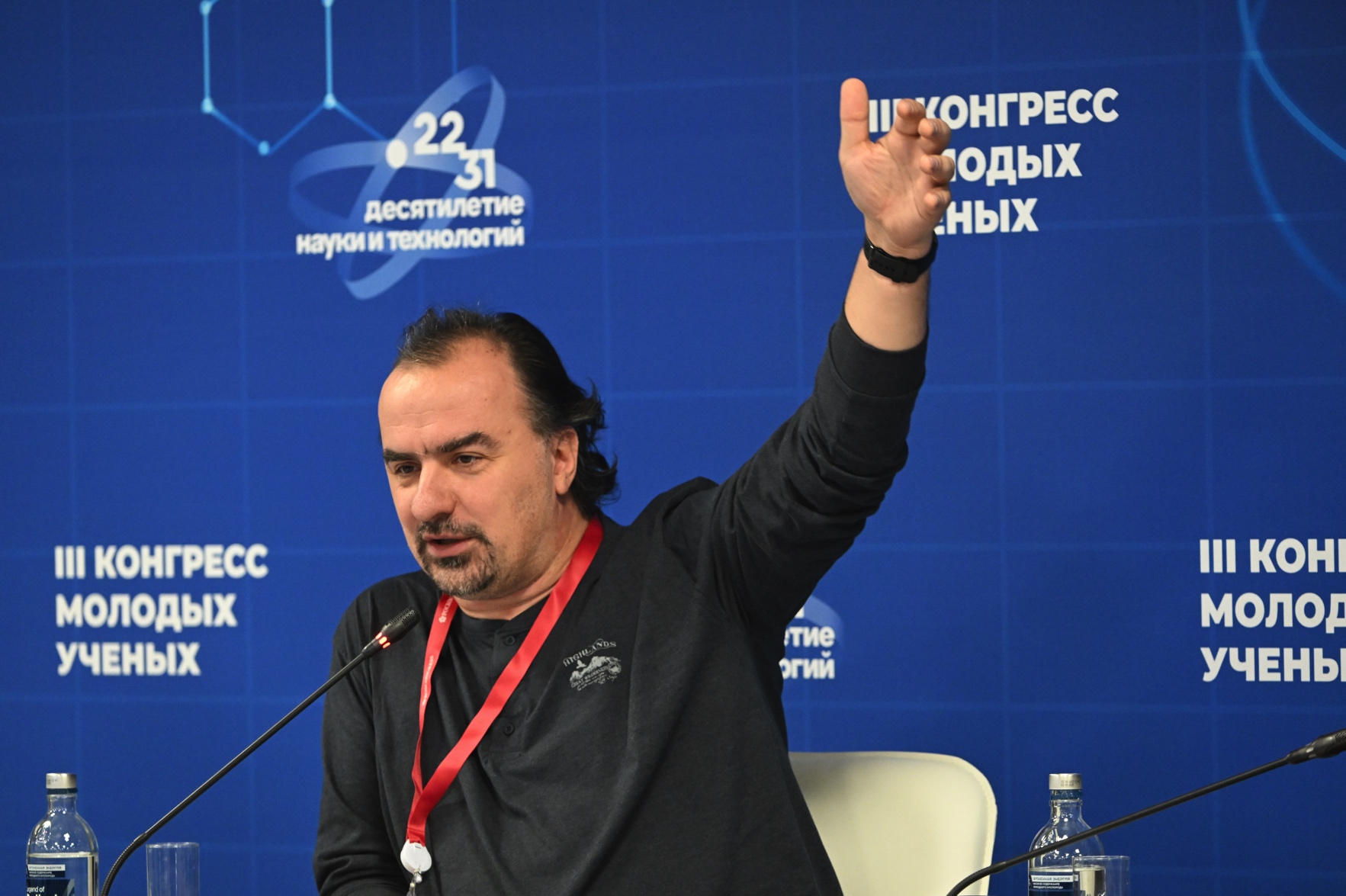
Alexey Paevsky, Member of the the VYZOV Award Scientific Committee, Curator of the Decade of Science and Technology project
Photo: The III Young Scientists Congress
The session participants also discussed ways to motivate the new generation to pursue a career in science. According to Maxim Pratusevich, Principal of the Presidential Physics and Mathematics Lyceum No. 239, the award alone cannot motivate young people to do science. Young researchers will be attracted to science, only if it becomes fashionable, respectable, and rewarding. – he said.
Maxim Nikitin, Head of the Nanobiotechnologies Laboratory at the Moscow Institute of Physics and Technology, and Head of the Nanobiomedicine branch at Sirius University, advised young scientists to start by solving fundamental problems and then add applied science tasks – this will let them get used to being "the first and the best in the world", and then allow them to help society solve urgent problems relying on the highest standards
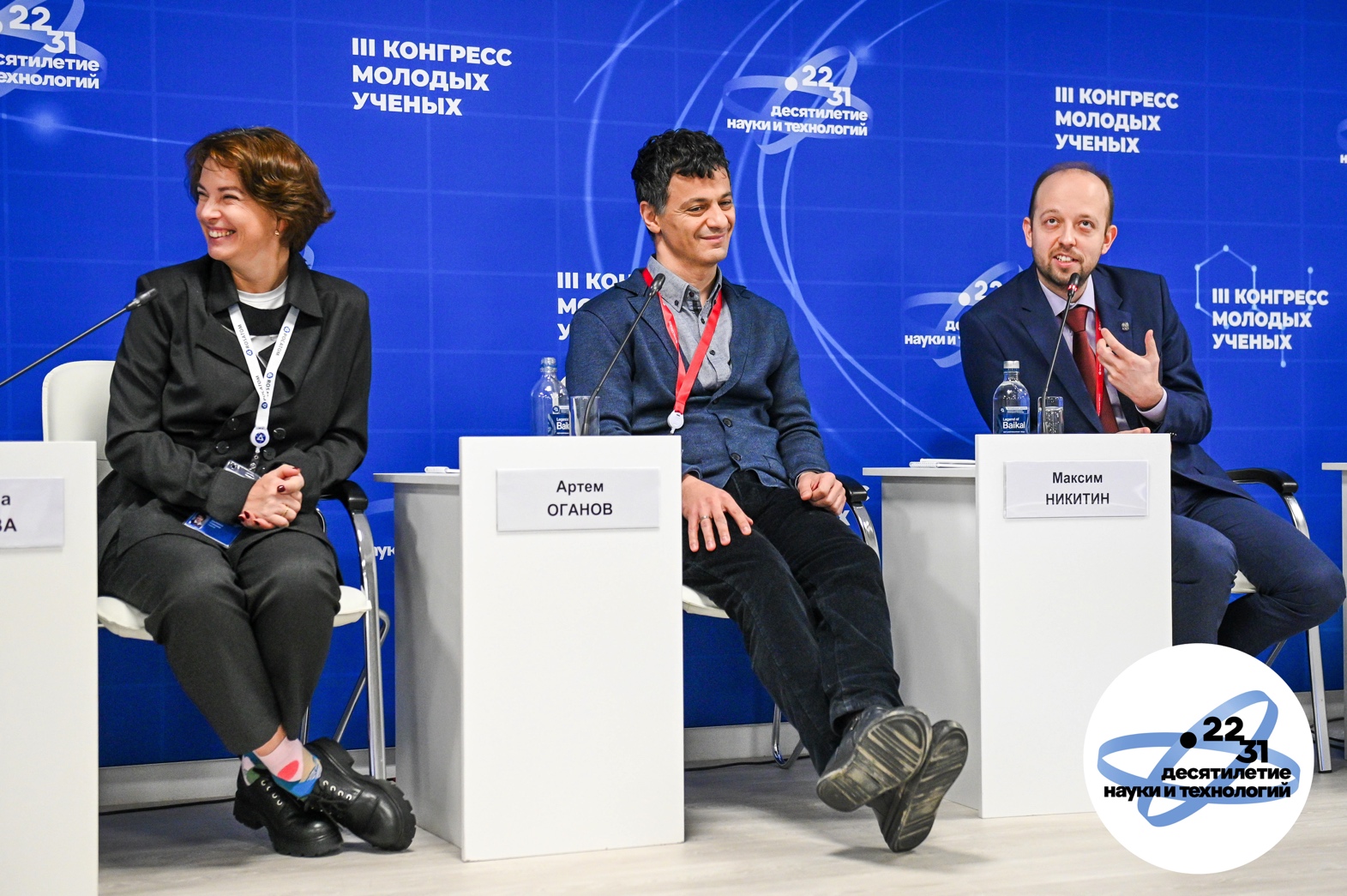
Photo: The III Young Scientists Congress
The Young Scientists Congress is a key event of the Decade of Science and Technology in Russia, announced by Vladimir Putin in 2022. The Congress brings together representatives of leading scientific institutions from different regions of Russia, scientific and educational organizations, authorities, industrial partners, top scientists, and most importantly – young researchers, grant winners, students, and schoolchildren from Russia and other countries.
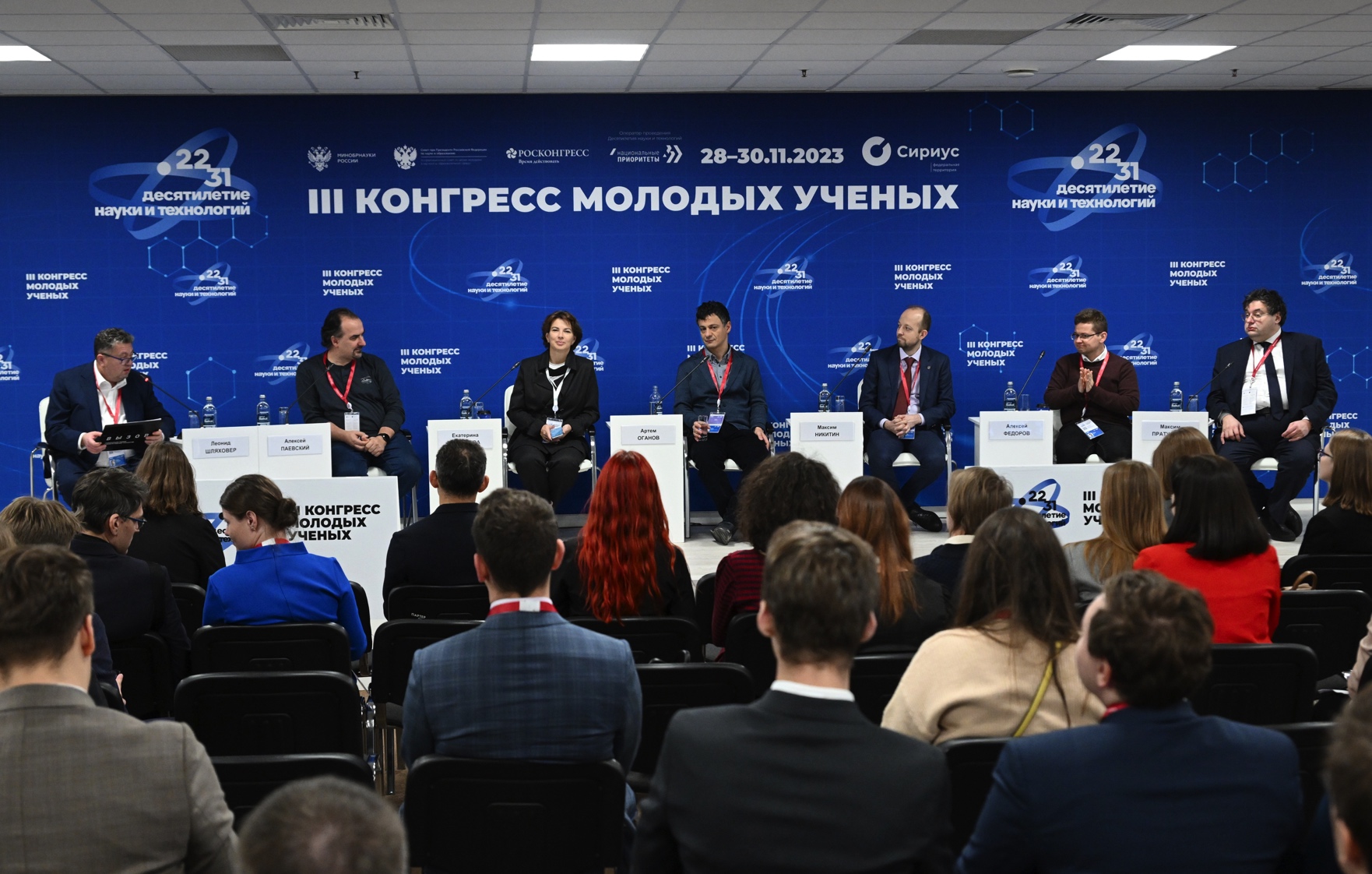
Photo: The III Young Scientists Congress
The Congress of Young Scientists is organized by the Roscongress Foundation, the Ministry of Science and Higher Education of the Russian Federation, and the Coordinating Council for Youth in Science and Education. The operator of the Decade of Science and Technology is the National Priorities Autonomous Non-profit Organization.


